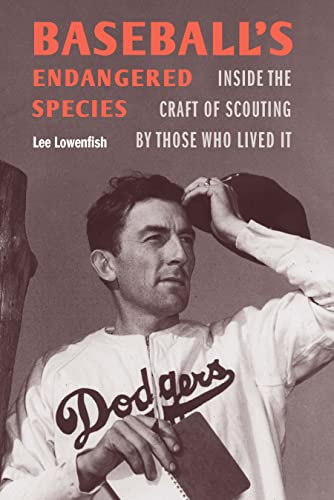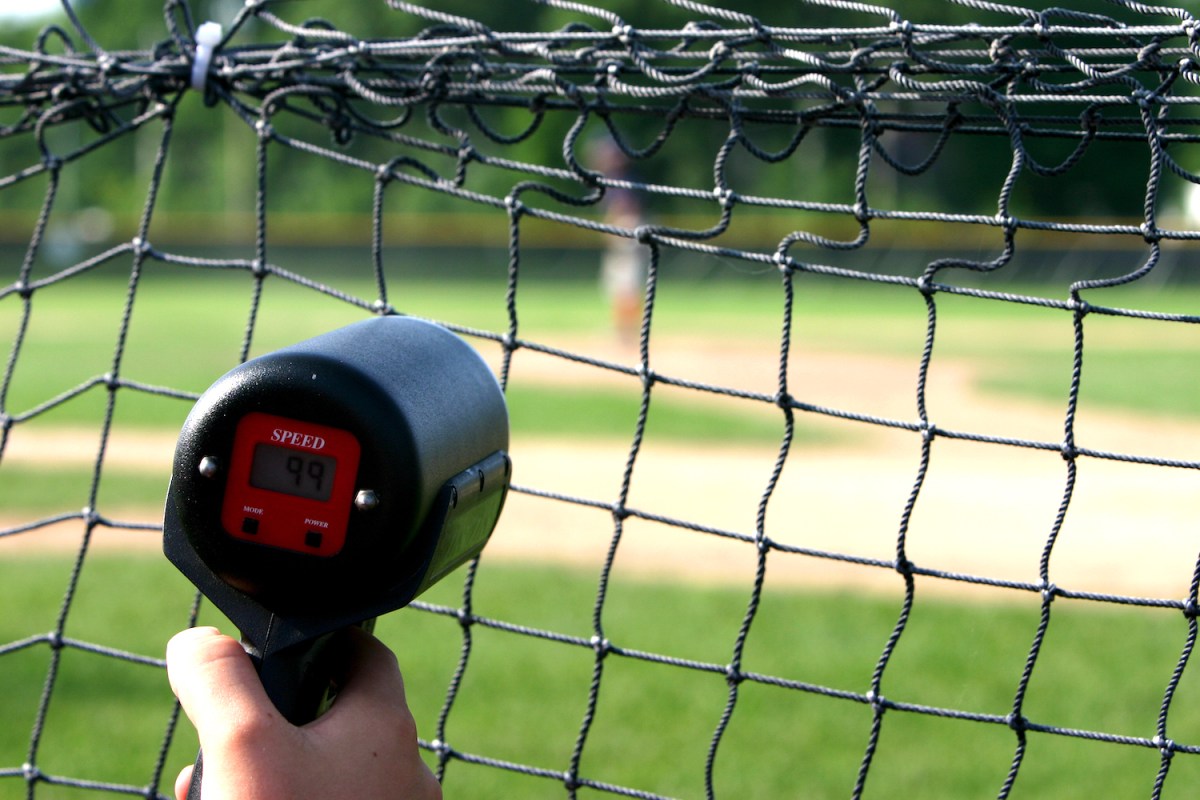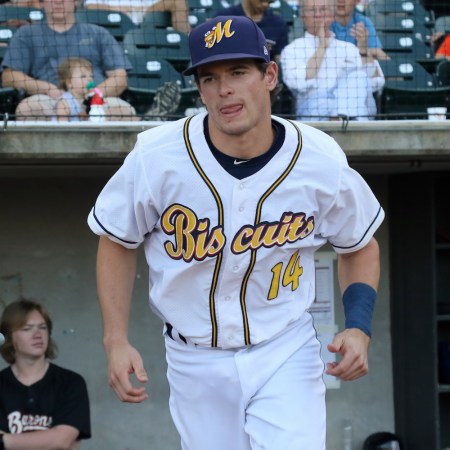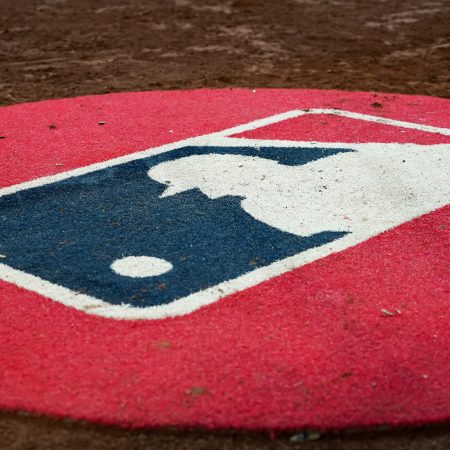In the spring of 1964, former Major League Baseball pitcher-turned scout for the New York Mets, Red Murff, drove to Galveston, Texas, to take in a few games during a baseball tournament and take notes on its player participants. None of the ones he saw in Galveston that day would turn out to be as memorable as the young man he’d see — and hear — throw a baseball in the city of Alvin, about an hour’s drive away. Murff went to Alvin Texas High School just to visit a friend who was watching a baseball game there. On the mound, however, was Nolan Ryan, the eventual Hall of Fame pitcher and MLB strikeout king.
Though he was then just a skinny junior whose head coach didn’t even think was the best pitcher on his own team, Ryan blew Murff away about as much as he did the batters that faced him. “Once he heard the whoosh of Ryan’s fastball exploding into the catcher’s glove, he knew he was witness to one of those rare epiphanies in scouting,” writes Lee Lowenfish in his new book, Baseball’s Endangered Species: Inside the Craft of Scouting By Those Who Lived It.
Stadiums Across Sports Are Taking Steps Towards Greater Sustainability
From solar panels to rooftop gardensMurff had discovered a future Major Leaguer. He was so certain of it, he told Ryan’s manager not to send box scores of games in which he appeared to the local newspapers out of fears that scouts for other teams would pick up the scent. It’s compelling stories like this about the emergence of some of baseball’s greatest heroes that pepper the pages of the book by Lowenfish, a longtime historian and baseball lover. InsideHook spoke to him about the inspiration behind his dense text, why scouts are “endangered” and why that’s awful for the game.
This interview has been edited for context.
InsideHook: What drew you to this subject of MLB scouts?
Lee Lowenfish: I was born and raised in New York City, a block south of Central Park, and my father, who was a dermatologist, loved baseball. So, of course, I fell in love with the game, too. Later, I attended some local high school and college games at a field near John Jay College, not far from the southwest corner of Central Park. I saw some scouts at the games and introduced myself to one of them named Billy Blitzer with the Chicago Cubs. I recognized the last name and it turned out he was the grandson of a patient of my father’s. He eventually introduced me to a lot of other scouts, like Herb Stein who signed Rod Carew and Frank Viola, so Billy was kind of my portal into the world of baseball scouting.

In your estimation, how important are scouts to Major League franchises?
Herb Stein put it very well: you don’t have any players until you have scouts. Scouts get to know the players, see how they play — or as one scout put it to me, they see how they look the moment they get off the bus. Unless you have that, I don’t think you’re going to contend. Look at the winningest teams over the years, the Yankees, Cardinals and Dodgers. They won a lot because they knew how to scout and develop players. You can’t do that without scouts who find them or good scouts who can work well with player developers in Major League franchises. If they’re at loggerheads with each other — if you have the scout saying, “What did you do to my player?” and the coach or developer saying, “What did you see in him?” — they’re going to struggle as an organization. It’s really a fascinating subject, and the stories of these scouts haven’t been told in any real detail.
You label the scouts “an endangered species.” Why?
Because so many of the new owners come out of the hedge fund business. Steve Cohen, owner of the New York Mets, is a great example, but there’s also Bruce Sherman, who owns the Miami Marlins. You go down the list, and they made their money leveraging algorithms and all that. Starting with statisticians like Bill James and, later, Theo Epstein, franchise managers today think in very economic terms, focusing on numbers. But baseball is a relationship game. That’s why scouts are being threatened. When Moneyball came out, it cost a couple hundred scouts or more their jobs. But, again, good organizations will understand the importance of people who actually watch the games — the ones that win, like the Yankees, who still have not laid off that many scouts. The Houston Astros actually added scouts last year. One thing you have to accept with a deep sigh is that owners are never going to change. You can’t buy a pennant. I think Cohen’s gonna find that out.
What are baseball people, like these statisticians you mentioned, missing when they don’t hire scouts or acknowledge their work?
I go back to an old saying: God gave you two ears and two eyes and only one mouth. That means “listen” and “keep your eyes open” and watch. You can’t see the talent to the fullest extent on video. You can see how hard someone throws, but does the pitcher’s pitches move? Does he change speeds? It doesn’t matter how hard a pitcher throws, a Major League hitter’s gonna hit it, especially if it’s straight. You can throw your arm out, too, if you just try and throw hard, which happens so often.
What do scouts listen for?
The sound of the bat. That’s for sure. If you barrel it up, but also if you’re smart enough to know situational hitting. You don’t have to swing for the fences every time. Both Wade Boggs and Ichiro Suzuki could’ve won every home run hitting contest if they wanted to. But when it came time to play the game, their idea was to get on base and score. So many scouts are also upset that there’s no more infield practice before games for most teams. The Atlanta Braves, with that coaching staff of former Major League players and longtime baseball men, they have it once a week at least and it shows.
Personally, I’m not totally in love with the product on the field anymore in MLB, with hitters swinging out of their shoes all the time and their general fundamental skills having gone to the wayside. Are you concerned about the state of the game going forward like I am?
Very. Between that and the gambling. Some people feel the gambling will save the game because of the money. You’ve got a guy like the Colorado Rockies’ Charlie Blackmon, the first player to partner with a betting platform — obviously there will be people trying to pick his brain. There’s a real cause for concern there.
But the game is so great; it’s survived so many things. There are always rays of hope.
The Charge will help you move better, think clearer and stay in the game longer. Subscribe to our wellness newsletter today.
























